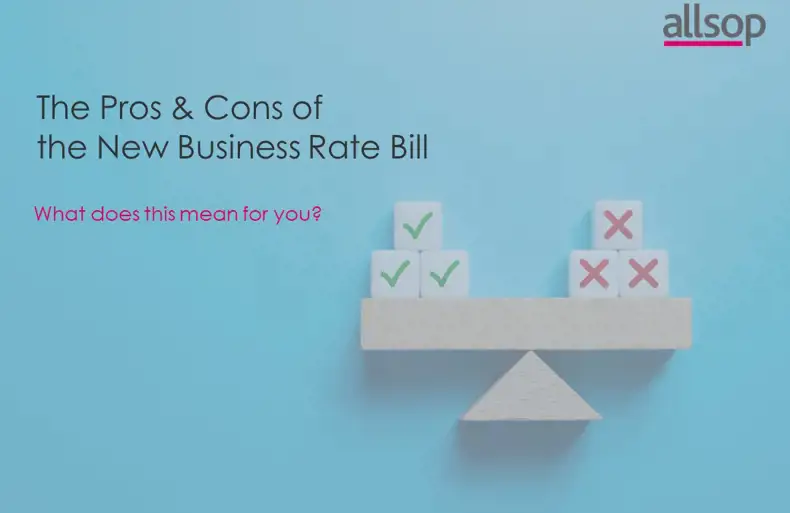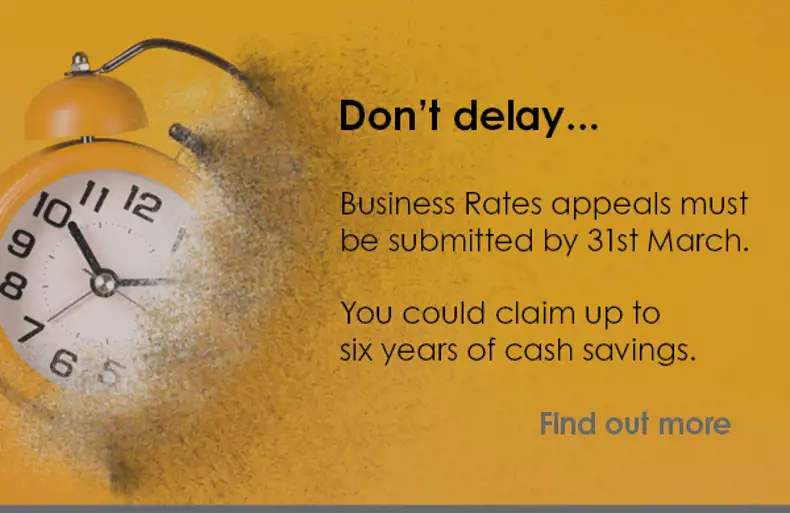Blog | Occupier Business Rates
Business Rates Review: Call for Evidence

At the spring budget the Government announced it would conduct a fundamental review of business rates due to the widespread concerns at the level of the tax and its effects on businesses. A dedicated consultation was opened in July which provides participants with an opportunity to share their views on the current business rates system in order to identify issues, gather ideas that may inform future changes and obtain feedback on alternative taxes.
This initiative followed a series of measures undertaken by the Government to support the UK economy during the COVID-19 pandemic, which included full business rates holidays for some of the worst hit sectors of the economy – retail, hospitality and leisure – for the current financial year. The wide-ranging scope of the review could result in the most fundamental changes to the modern rating system since it was introduced in 1990. The Government will publish an interim report this autumn with the full conclusions being published next spring. The areas under consideration areas follows:
Rate reliefs
In the 2018/19 rate year, UK businesses were granted a combined £4.25bn in rates relief. Based on the sheer number of different reliefs available and taken up, the Treasury Select Committee has suggested that the system may be broken and needs to be revised. The expansion of the number of reliefs available to businesses has led to the narrowing of the business rates base, which increases the pressure on other parts of the tax system. The Government has claimed there is evidence that some businesses are avoiding paying rates through the misuse of reliefs, particularly empty property relief. It is seeking evidence on whether reliefs can be simplified, targeted more effectively and made robust against abuse.
The Uniform Business Rate
The Uniform Business Rate (UBR) is the multiplier used to determine rates bills, which is increased every year in line with inflation to maintain rates revenues in real terms. When a rates revaluation takes place, the UBR is recalculated in order to bring in the same rates’ income. The Government is considering alternative methods of setting the UBR each year as well as at revaluations and the merits of potentially introducing additional UBRs that vary by geography, property value or type. The high UBR level is the fundamental issue which has led to the widespread concerns about the business rates system. Since 1990, the UBR has increased from 34.8p to 51.2.p today and will likely exceed 60p following the 2023 Rating Revaluation, representing a 72 per cent increase from its original level. It is believed that a continuation of rates relief in the retail sector in 2021/22 is essential to avoid a catastrophic impact on businesses and jobs. Putting in place different multipliers for different types of properties would help provide relief in a targeted manner. The introduction of a retail UBR would enable relief to be granted directly to the retail sector. If an online sales tax were to be introduced, then the sums raised could be used to compensate for a lower retail UBR.
Valuations
The consultation also invites participants to consider how often revaluations should take place. In order to facilitate more frequent revaluations, the consultation is exploring whether moving away from precise valuations for individual properties and replacing them with a banding or zoning approach would be feasible. Participants are encouraged to share their thoughts on potential changes to the way in which the information necessary for revaluations is collected. The Government is also exploring whether changing the current two-year gap between the date when the revaluation takes place and the date when it comes into effect would be beneficial. Since the call for evidence was published, the Scottish Government has confirmed that its 2023 Revaluation will be based on 2022 values and not 2021 values as is proposed in England. In England at every Rating Revaluation since 1990 there has been a two year lag between the valuation date for the Revaluation and the date it comes into effect. With the advance in technology over 30 years it has to be possible to shorten this to just one year as is proposed in Scotland.

Valuation transparency and appeals
While the Valuation Office Agency (VOA) has a legal obligation to protect the lease and rental information it collects, the Government is seeking evidence on the benefits of providing more information to ratepayers and views on any issues this would involve such as transactions covered by confidentiality agreements. At present, the VOA does not publish the rental evidence utilised to support its valuations unless an appeal is made. Providing this rental evidence at the outset would go a long way to help reduce the need to appeal, ensuring attention can be focused on incorrect rateable values.
Exploring alternatives to business rates
The Government is seeking views on the introduction of alternative taxes to either replace or complement the business rates system: Capital values tax – As some are critical of taxing properties based on their rental value, the government is seeking views on whether a property tax based on capital values would address these concerns and how such a tax could improve upon the advantages of business rates. The Government recognises concerns as to defining who would be liable for a tax based on ownership and the implications of potentially transferring liability for tax from tenant to landowner or property owner. Online sales tax – It has long been argued that business rates impose an unreasonable burden on retail where property is a major cost, creating a distortion which benefits online retailers that can operate without high-value commercial units. This has led to suggestions that a tax should be levied on companies based on their online sales, which could be used to fund business rates reductions for retail properties. The Government is looking for evidence on the benefits and risks of introducing an online sales tax and how it could be operated.
Related Insights

Five things to consider when your new rates bill arrives
Five things to consider when your new rates bill arrives

New Rating Bill – changing business rates
Parliament is soon going to enact new primary legislation on business rates, which will have an impact on your pocket as well...

Potential rates refund? Act before it’s too late!
Time is running out to challenge your current business rates – so action is needed now! The last date to submit an appeal to ...

Why are business rates so unpopular?
Whoever you speak to about business rates, you can be confident of two things. One, they will not like business rates. Two, i...